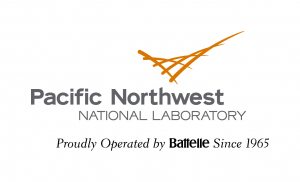 A lightweight metal that reduces fuel use in cars and planes could be extracted from the ocean through a unique process being developed at the Department of Energy’s Pacific Northwest National Laboratory. The process could ultimately make fuel-efficient transportation more affordable and expand the American magnesium market.
A lightweight metal that reduces fuel use in cars and planes could be extracted from the ocean through a unique process being developed at the Department of Energy’s Pacific Northwest National Laboratory. The process could ultimately make fuel-efficient transportation more affordable and expand the American magnesium market.
Among the lightest of metals, magnesium is used in alloys that decrease weight and increase strength of key parts used in vehicles, airplanes, power generation equipment, industrial processes and buildings. But magnesium is about seven times more expensive to produce than the steel traditionally used in those applications. The US imports about a third of the nation’s magnesium from China, the world’s largest producer and where the process creates substantially more carbon emissions.
PNNL is developing a new, titanium-based catalyst that regenerates an important chemical used in the magnesium extraction process. The catalyst will enable a more efficient process and use less energy. PNNL’s process will require temperatures of no more than 300 degrees Celsius, which is much lower than the 900 degrees Celsius required by the current U.S. process.
The project team plans to develop a prototype system that uses the new process. Commercial-scale magnesium production with the new process is expected to halve the current U.S. production cost. It should cost less than $1.50 and require only 25 kilowatt-hours of energy per kilogram.
Read the original article here.